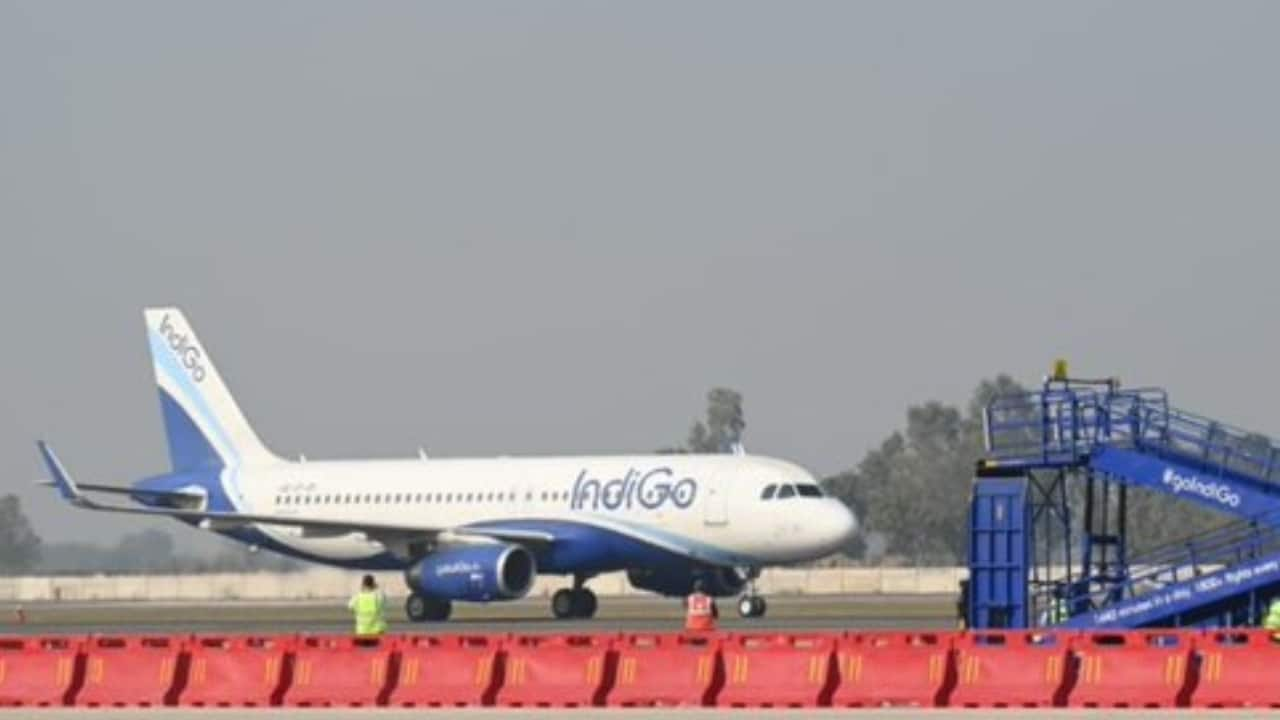 |
|
InterGlobe Aviation Ltd, the parent company of IndiGo, reported a significant decrease in its net profit for the third quarter of fiscal year 25 (Q3 FY25). Despite experiencing robust demand for air travel, the company's net profit fell by 18 percent, reaching Rs 2,449 crore compared to Rs 2,998 crore in the same period of the previous year. This decline, while counterintuitive given the high demand, is largely attributed to a combination of factors including increased operating costs and a less favorable comparison to the exceptionally strong performance of the previous year's October-December quarter, which benefited from the peak travel season during major festivals.
The company's revenue, however, showcased considerable growth. A 14 percent surge brought the total revenue for Q3 FY25 to Rs 22,111 crore, exceeding the previous year's figure of Rs 19,452 crore. This impressive revenue growth was primarily fueled by a 12 percent increase in available seat kilometers (ASK) and a 13.5 percent rise in revenue passenger kilometers (RPK). The load factor also improved, reaching 86.9 percent, representing a 1.2 percentage point increase year-on-year. These positive indicators demonstrate a sustained demand for IndiGo's services despite the overall decline in net profit.
However, a closer examination of the financial results reveals a significant increase in operating costs which offset the revenue growth. The cost per available seat kilometer (CASK), excluding fuel, experienced a sharp 23.1 percent year-on-year increase, reaching Rs 3.25. This substantial rise is directly attributable to the impact of inflationary pressures and escalating operational expenses across various areas, including airport charges, aircraft leasing, and maintenance of grounded planes. Additionally, depreciation and amortization expenses saw a notable jump of 33.6 percent during the quarter. These increased costs, coupled with a decline in yields, ultimately contributed to the lower overall profitability.
The contrast between revenue growth and profit decline is further highlighted by the company's revenue per available seat kilometer (RASK) and cost per ASK (CASK) figures. While RASK rose by a modest 1.9 percent year-on-year to Rs 5.44, CASK saw a more significant 6.8 percent increase, reaching Rs 4.83. This indicates a widening gap between revenue generation and operational expenditure, underscoring the impact of rising costs. Furthermore, the yield per passenger also decreased to Rs 5.43 in the December quarter, down from Rs 5.48 in the same quarter of the previous year. This reduction in yield suggests that IndiGo might have had to offer discounts to maintain its competitive edge and passenger numbers in a challenging market.
Despite the lower net profit, several key performance indicators still point to IndiGo's strong market position. EBITDAR (earnings before interest, tax, depreciation, amortization, and rent) increased by 10.7 percent to Rs 6,059 crore, demonstrating robust operational efficiency. The EBITDAR margin, while down 70 basis points from last year, still remained at a healthy 27.4 percent. When adjusted for foreign exchange impacts, the margin improved to 33.7 percent. The airline also maintained its dominant market share, carrying 273.25 lakh passengers and commanding a 63.8 percent market share during the quarter, surpassing the 62.1 percent market share achieved in the year-ago period. The company’s strong cash reserves also demonstrate its financial stability, with total cash reserves standing at Rs 43,781 crore as of December 31, 2024, a 35 percent increase from the same period last year.
The company's management anticipated the slowdown in demand and yield during the third quarter, attributing it to the exceptionally high base of the previous year's corresponding quarter. IndiGo's CFO, Gaurav Negi, had previously indicated a mid-single digit moderation in passenger revenue per available seat kilometer (PRASK) compared to the exceptionally high figures of the previous year. This foresight aligns with the actual results, reinforcing the impact of comparing the current quarter’s performance against an unusually strong previous year. The airline’s earlier Q2 results already hinted at a potential slowdown, with a net loss of Rs 987 crore primarily attributed to increased airport fees, maintenance costs, and fuel expenses. This financial performance underscores the challenges faced by the airline industry in navigating a volatile market characterized by fluctuating demand, rising costs, and intense competition.
Looking ahead, IndiGo's management will need to implement strategies to mitigate the impact of rising costs while maintaining its market share and profitability. Balancing fare pricing to attract customers while effectively controlling operational expenses will be crucial to navigating the complex dynamics of the airline industry. The company's substantial cash reserves and strong market position provide a strong foundation for navigating these challenges, but sustained financial success will require strategic cost management and adaptation to market fluctuations. The financial performance for Q3 FY25, while presenting some challenges, does not detract from IndiGo’s overall position as a leading airline in India’s thriving air travel market. The high demand shows confidence in the airline, and the company can leverage its market share and financial strength to continue growth.
Despite the decline in profit, IndiGo's performance in Q3 FY25 reflects a complex interplay of growth and challenges in the airline industry. While robust demand provided a solid base, escalating operating costs and a strong comparative base from the previous year resulted in a lower net profit. The company's strong market share, substantial cash reserves, and management’s proactive anticipation of market fluctuations position it well to address the challenges ahead. The focus moving forward will be on strategically managing costs and pricing to ensure sustained profitability and growth in the dynamic Indian aviation sector. Further analysis of IndiGo’s performance needs to consider the macroeconomic environment, both in India and globally, to accurately assess its long-term prospects.
